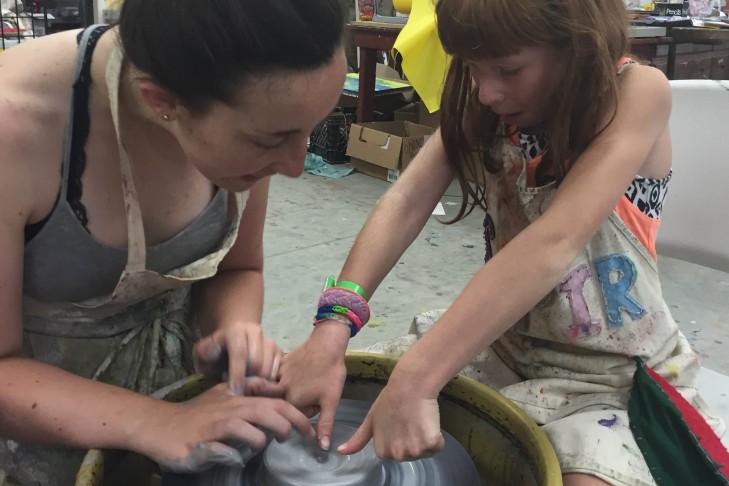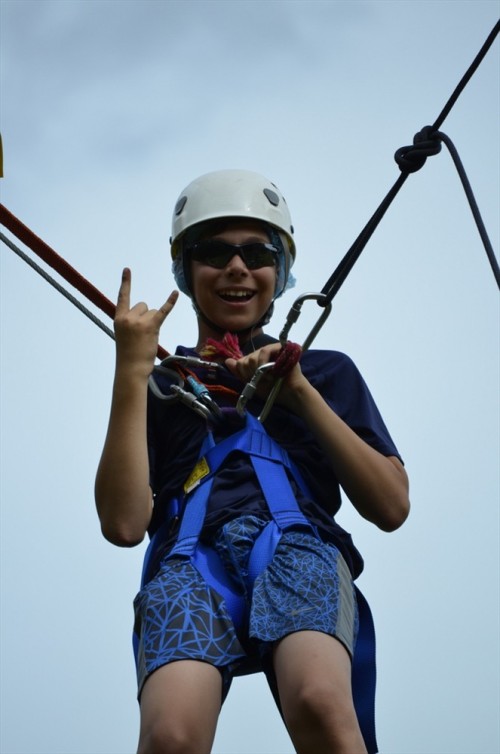What do Rick Jacobs (president of the URJ), Jonah Pesner (president of the Religious Action Center), Aaron Pankin (president of Hebrew Union College), Danny Freelander (president of the World Union for Progressive Judaism), Jeremy Wolfe (chair of the East District of the URJ), Sheila Katz (vice president with Hillel North America) and Susan Klau (vice president of the Jewish Student Association at America University) have in common? They all went to Jewish sleep-away camp. How do I know? These people have all talked about the summers they spent at Jewish camp, where they learned to be leaders.
To be truthful, there are no courses at camp on how to be a leader. There is swimming and tennis and color war. Some of the camps have water skiing and others have intensive science and technology. There are two Jewish camps that have intensive sports programs. So, how do the camps make leaders?
The first step is that campers fall in love with being Jewish. Camp is a safe place to experiment with Jewish ideas. Our children are surrounded with caring clergy and faculty who act as sounding boards for the youth to share ideas. Services are led by the campers themselves and after each song or new prayer, hands are waved (camp code for applause). I asked Lucy Waldorf (grade 5) what she thought: “I love camp because it’s full of new people, new interests and great values. At camp you are able to meet people that you can connect with and have fun with all year long. You can also be introduced to activities you might not have otherwise tried; for example, I went zip-lining for the first time and I enjoyed it and went multiple times after that. At camp we learn important values, including Jewish values and values that are important to remember when sharing a room with 10 other girls. Camp is great for kids to grow, learn new things and learn important values.”
The next step is to have the campers fall in love with Israel. Israel is part of camp culture from the youngest age. There are counselors and scouts from Israel and the senior staff have been to Israel a number of times. Back at camp, the campers even learn a little Hebrew; “hakshievu, hakshievu” (attention, attention) is said on the PA before each announcement. Many of the buildings are called by their Hebrew names. The point is not to teach Hebrew, but to strengthen the connection between our youth and Israel (although some learning happens almost by osmosis!). After their last summer as a camper and first summer as a machon (CIT), many of the campers go to Israel as part of NFTY with their camp friends. I have been told that this summer is transformative.
The third step in becoming a Jewish leader is to lead. Besides leading services, older campers mentor younger ones, insuring that every camper has a young role model. Campers are captains during color war, leading their team and setting an example on how to win and lose like a mensch. Every camper looks forward to becoming a machon, and this is the time when campers transition to a counselor. The real evidence of leadership is when the campers return to their temple. Kids who go to Jewish camp are more likely to be a member of the temple youth group, more likely to be a teacher assistant in Hebrew school and more likely to be active in the Jewish community when they go to college.
According to David Smith (grade 5): “I love Crane Lake Camp because of the people. Everyone is so nice. During Maccabiah (color war) no one is ever mean. And there is never, ever a competitive spirit.”
According to Luca Liebow (grade 6): “I love camp because you always have a good time and you meet new friends and there are super fun activities.”



